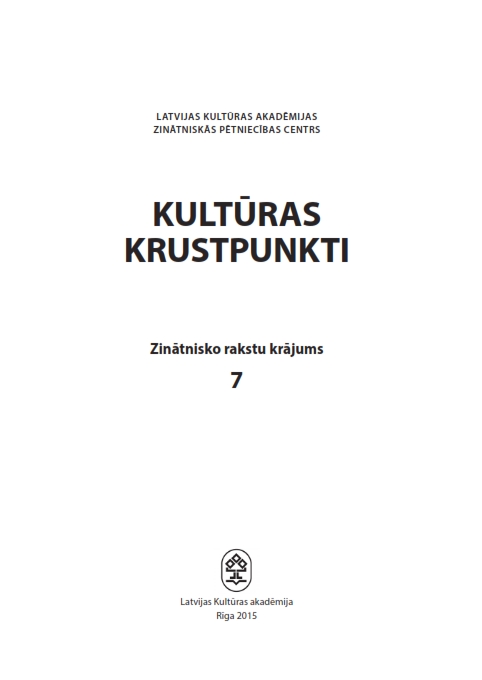Šekspīriskais cilvēks renesanses ideju kontekstā
Shakespearian Man in the Context of Renaissance Ideas
Author(s): Zane ŠiliņaSubject(s): Cultural history, Metaphysics, Hermeneutics, Ontology, British Literature
Published by: Latvijas Kultūras akadēmija
Keywords: Shakespeare; Marlowe; Pico della Mirandola; Dante Alighieri; man; God; animal; nature; Renaissance; daring;
Summary/Abstract: William Shakespeare’s writing is characterised by lasting interest in man as a dialectic being. On the one hand, it can be explained by the specific features of the genre chosen by Shakespeare, for both the play (a tragedy, a comedy, a historical chronicle) and the sonnet call for a more intense clash of thesis and antithesis. On the other hand, it is the age that has shaped the notion of man as a being with inner contradictions: Shakespeare wrote his works at a time when an optimistic view of man was gradually replaced by pessimism that is characteristic of the decline of Renaissance. The paper is devoted to the analysis of interpretation of the image of man that is typical of Shakespeare’s writing. Special attention is paid to the pair of opposites of “man-God” and “man-degenerate of nature”, emphasising daring as a common measurement of the value of man in Renaissance. The interpretation of the image of man that is specific to Shakespeare’s writing is viewed in the context of ideas of Renaissance authors: Pico della Mirandola, Dante Alighieri, Giovanni Boccaccio and Christopher Marlowe.
Journal: Culture Crossroads
- Issue Year: 7/2015
- Issue No: 1
- Page Range: 215-223
- Page Count: 9
- Language: Latvian

